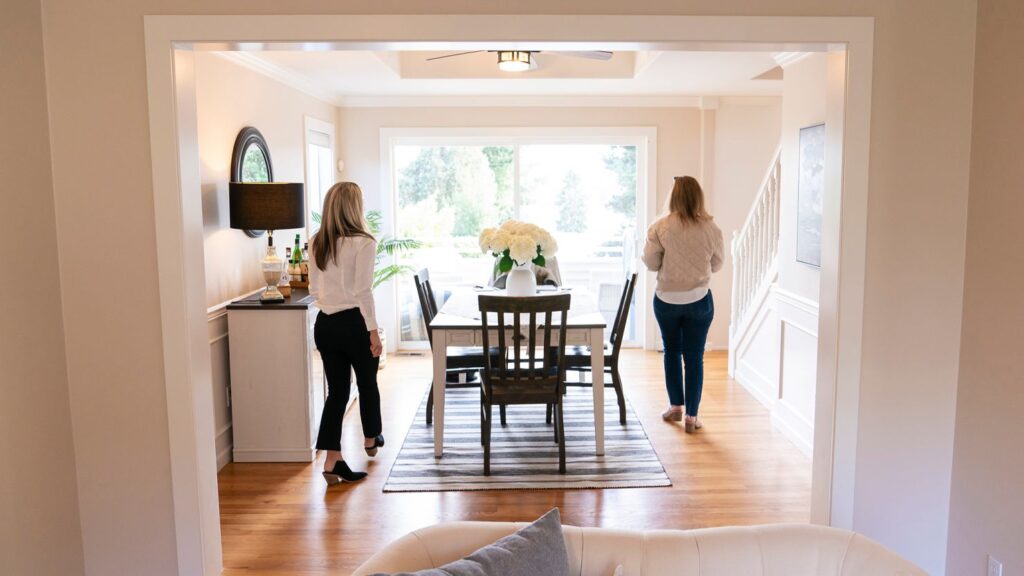Finding a home in Vaucluse, one of the most affluent suburbs in Sydney, can be both exhilarating and daunting. The local real estate market is characterized by its high-value properties and competitive bidding processes. This is where a buyers advocate can make a significant difference in your home-buying journey. Their expertise and local knowledge can help you secure your dream home while navigating the complexities of the market.
Understanding the Role of a Buyers Advocate
A buyers advocate Vaucluse, also known as a buyers agent, functions as a professional representative for home buyers. Their primary goal is to assist clients in finding and purchasing properties that align with their specific requirements and preferences. This service is particularly invaluable in a competitive market like Vaucluse, where property values can fluctuate rapidly and desirable listings can vanish in the blink of an eye.
The Job of a Buyers Advocate
The job of a buyers advocate encompasses a wide range of responsibilities. From the onset, they conduct a comprehensive analysis of your needs, understanding factors such as your budget, desired location, and property type. This personalized approach ensures that your search is focused and efficient. They take the time to get to know you, asking detailed questions about your lifestyle, future plans, and any specific features that are important to you, such as proximity to schools, parks, or public transport.
Once the requirements are established, the buyers advocate delves into the local market, leveraging their extensive databases and networks. They identify suitable properties, arrange inspections, and provide insights that clients may not easily obtain on their own. This not only saves time but also streamlines the entire buying process. Additionally, they often have access to off-market listings, which can be a game changer in a competitive area, giving you a potential edge over other buyers who are limited to public listings.
How a Buyers Advocate Can Help You
A buyers advocate can help you navigate the complex layers of property acquisition. They act as your eyes and ears in the market, continuously monitoring trends and new listings. Their expertise allows for quick assessments of property values and potential investment risks, ensuring you make informed decisions. They also keep you updated on market conditions, helping you understand when it might be a good time to buy or if waiting could yield better options.
Moreover, a buyers advocate possesses negotiation skills that are critical in a competitive environment. They represent your interests in discussions with sellers and their agents, working diligently to secure the best possible price and terms for your purchase. This level of professional negotiation often leads to advantageous outcomes that buyers may not achieve independently. In addition to price negotiations, they can also negotiate favorable conditions such as extended settlement periods or repairs to be made before the sale is finalized, further enhancing the value of your investment. Their experience in handling various scenarios prepares them to tackle unexpected challenges that may arise during the buying process, ensuring a smoother transaction overall.
The Prestige of Vaucluse: A Closer Look
Vaucluse is not just another suburb; it is synonymous with luxury and exclusivity. Known for its stunning ocean views, lush green landscapes, and historic architecture, this area attracts buyers from around the globe. Understanding what makes Vaucluse appealing is essential when contemplating a purchase here.
The Allure of Vaucluse
The allure of Vaucluse lies in its idyllic lifestyle. The suburb boasts proximity to some of Sydney’s most beautiful beaches, including Bondi and Nielson Park. The lifestyle in Vaucluse is often described as relaxed and upscale, with residents enjoying outdoor activities, dining at high-end restaurants, and participating in vibrant community events.
Beyond its natural beauty, Vaucluse is characterized by a sense of community and connectedness, making it a highly desirable location for families, professionals, and retirees alike. Properties here tend to reflect sophistication, offering modern amenities while retaining unique architectural charm. The local markets showcase an array of fresh produce, artisanal goods, and gourmet delicacies, allowing residents to indulge in a lifestyle that celebrates both health and luxury.
What Makes Vaucluse Stand Out
What makes Vaucluse stand out among other Sydney suburbs is not just its properties but the overall lifestyle it offers. The combination of affluent residents, limited supply of homes, and consistently high demand contributes to a robust property market.
Moreover, Vaucluse is home to high-quality schools, parks, and recreational facilities that enhance its appeal to families. The close-knit community fosters an environment of support and engagement, which is often a significant factor for buyers when selecting their next home. Residents can often be found enjoying leisurely strolls along the coastal paths, participating in local art exhibitions, or attending community workshops that celebrate the suburb’s rich cultural heritage. The vibrant social scene, combined with the natural beauty of the area, creates a unique tapestry of life that is both enriching and fulfilling.
The Benefits of Using a Buyers Advocate in Vaucluse
Given the unique characteristics of the Vaucluse market, employing a buyers advocate can yield several significant benefits that greatly enhance your home-buying experience.

Navigating the Competitive Market
Navigating a competitive market can be overwhelming, especially for first-time buyers. With multiple offers often placed on desirable properties, having the right representation is essential. A buyers advocate not only stays informed about recent listings but also helps you strategize your approach to make competitive yet sensible offers.
Furthermore, their established reputation within the local real estate community can provide an edge during negotiations, as sellers may be more inclined to consider offers coming from a reputable buyers advocate. This insider knowledge can often lead to opportunities that are not widely advertised, giving you access to properties before they hit the open market. In a place like Vaucluse, where properties can be snapped up quickly, this advantage can be crucial in securing your dream home.
Achieving Your Property Goals
Using a buyers advocate increases your odds of successfully achieving your property goals. They equip you with in-depth market insights that inform your purchasing decisions, ensuring that you select properties that meet your criteria regarding both lifestyle needs and potential future value.
Ultimately, their focus is to help you find a property that not only suits your current lifestyle but also acts as a sound investment for the future. They guide you through every step of the process, ensuring you feel confident and informed. Additionally, a buyers advocate can assist in identifying potential issues with properties, such as structural concerns or zoning restrictions, that may not be immediately apparent. This thorough due diligence can save you from costly mistakes down the line, allowing you to make a more informed decision. By leveraging their expertise, you can navigate the complexities of the Vaucluse market with greater ease and assurance, making your home-buying journey a more enjoyable and successful endeavor.
The Process of Working with a Buyers Advocate
Understanding the process of working with a buyers advocate can alleviate any uncertainties you might have about engaging their services.
Initial Consultation and Property Search
The initial consultation is a crucial phase where the buyers advocate takes the time to understand your needs and preferences. This can involve discussing your budget, preferred property types, and lifestyle considerations.
Following this, the buyers advocate will begin the property search, sifting through listings, attending open houses, and utilizing their professional networks to identify suitable properties that meet your criteria.
Negotiation and Purchase
Once a suitable property is found, the negotiation phase kicks in. Here, the buyers advocate steps in as your representative, negotiating terms that are beneficial to you. Their skills in price negotiation and understanding of seller psychology often lead to favorable outcomes that can save you thousands of dollars.
Following the successful negotiation, the buyers advocate will assist you in managing the purchase process, guiding you through the legalities and paperwork involved, making the transition to homeownership as smooth as possible.
The Long-Term Value of a Buyers Advocate
The long-term value of engaging a buyers advocate extends beyond just the initial purchase. Their expertise can provide ongoing benefits as you settle into your new home.
Saving Time and Reducing Stress
One of the most significant advantages of hiring a buyers advocate is the time savings. Buying a home is often a time-consuming process that can become stressful. A buyers advocate handles all aspects of the search and purchase, removing much of the pressure from your plate.

With a professional managing the logistics, you can focus on what matters most: envisioning your future in your new home while they work diligently behind the scenes.
Making a Wise Investment Decision
Finally, a buyers advocate plays a crucial role in ensuring that your investment decision is wise. They analyze market trends, assess property values, and provide guidance on potential resale or rental opportunities, enabling you to make a decision that aligns with both your current needs and future aspirations.
In conclusion, the importance of buyers advocacy in Vaucluse cannot be overstated. With the right advocate by your side, you can confidently navigate the competitive market, alleviate stress, and ultimately secure the home of your dreams in one of Sydney’s most prestigious suburbs.
See Also: How a buyers agent in Vaucluse can help you secure a luxury property with breathtaking harbor views.



























